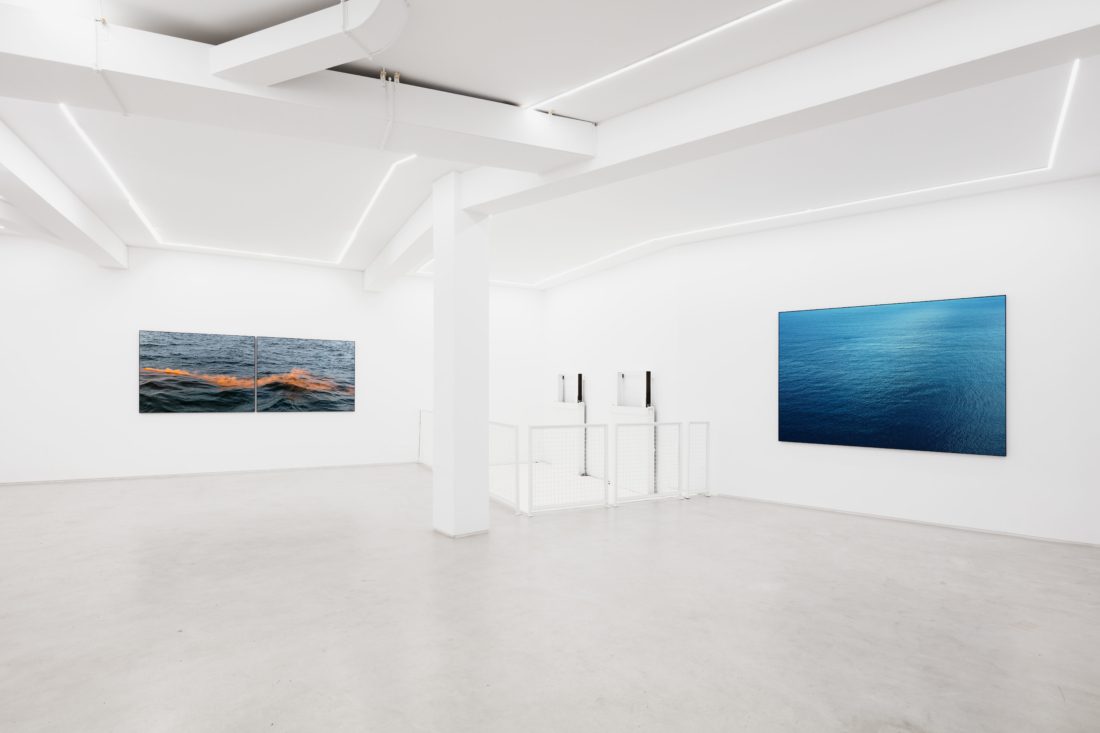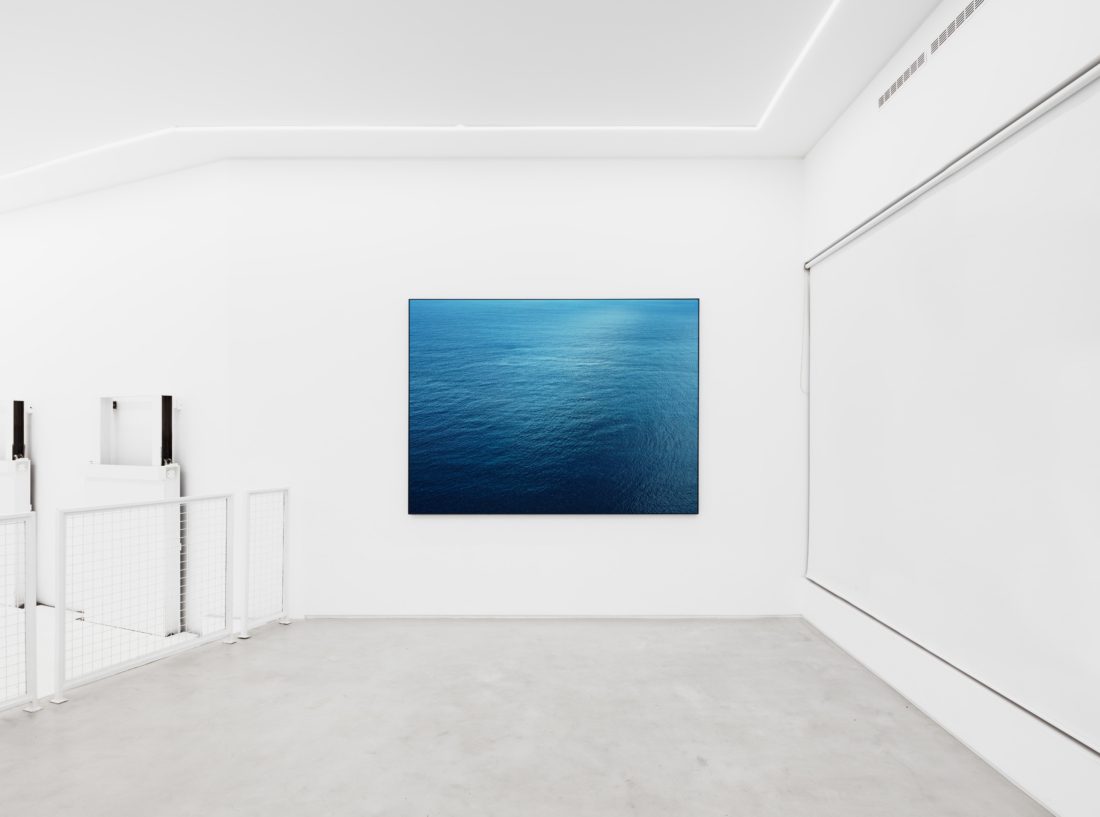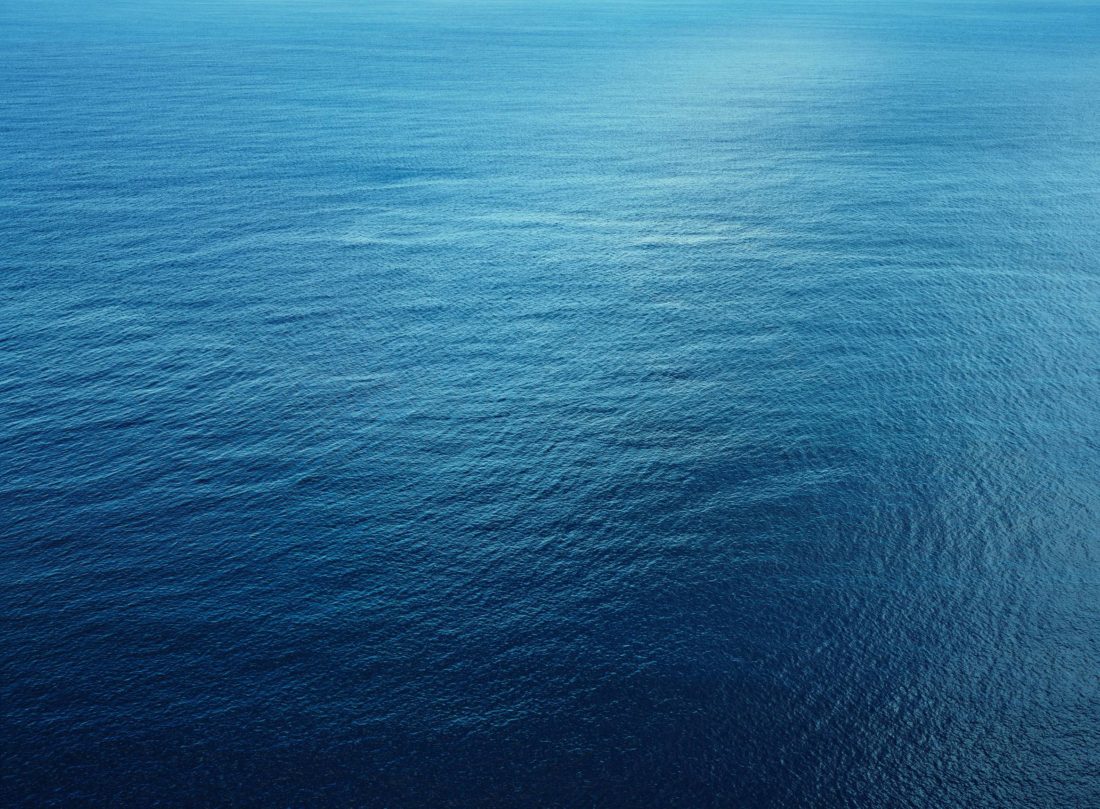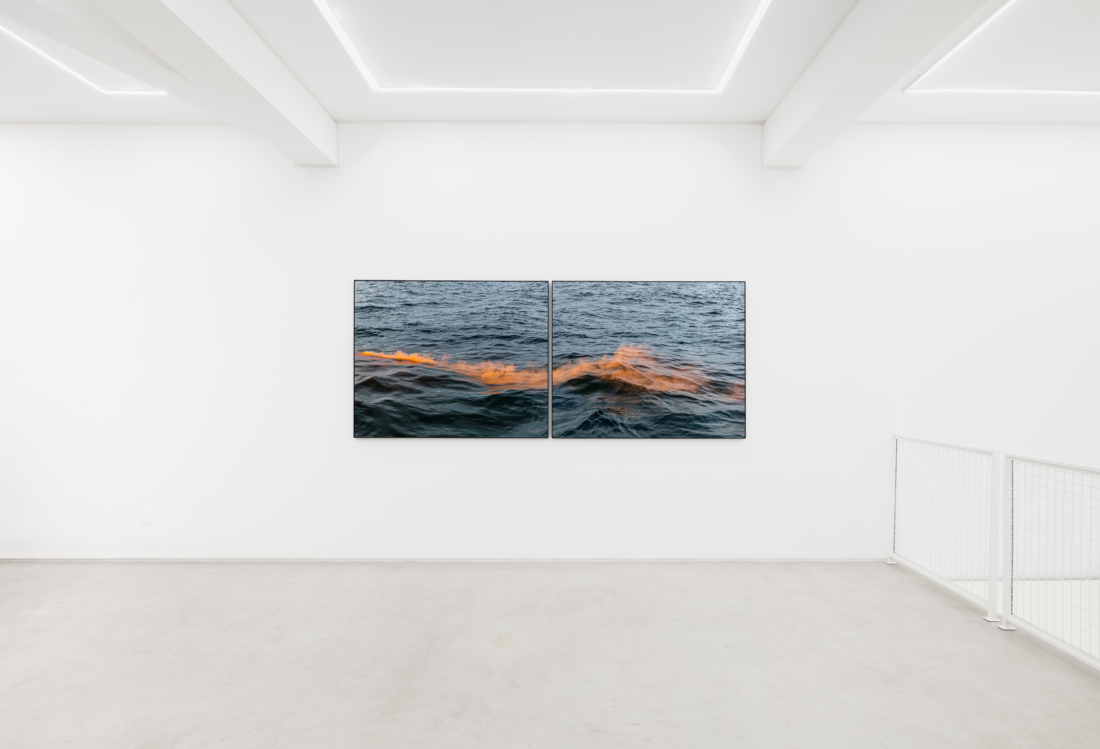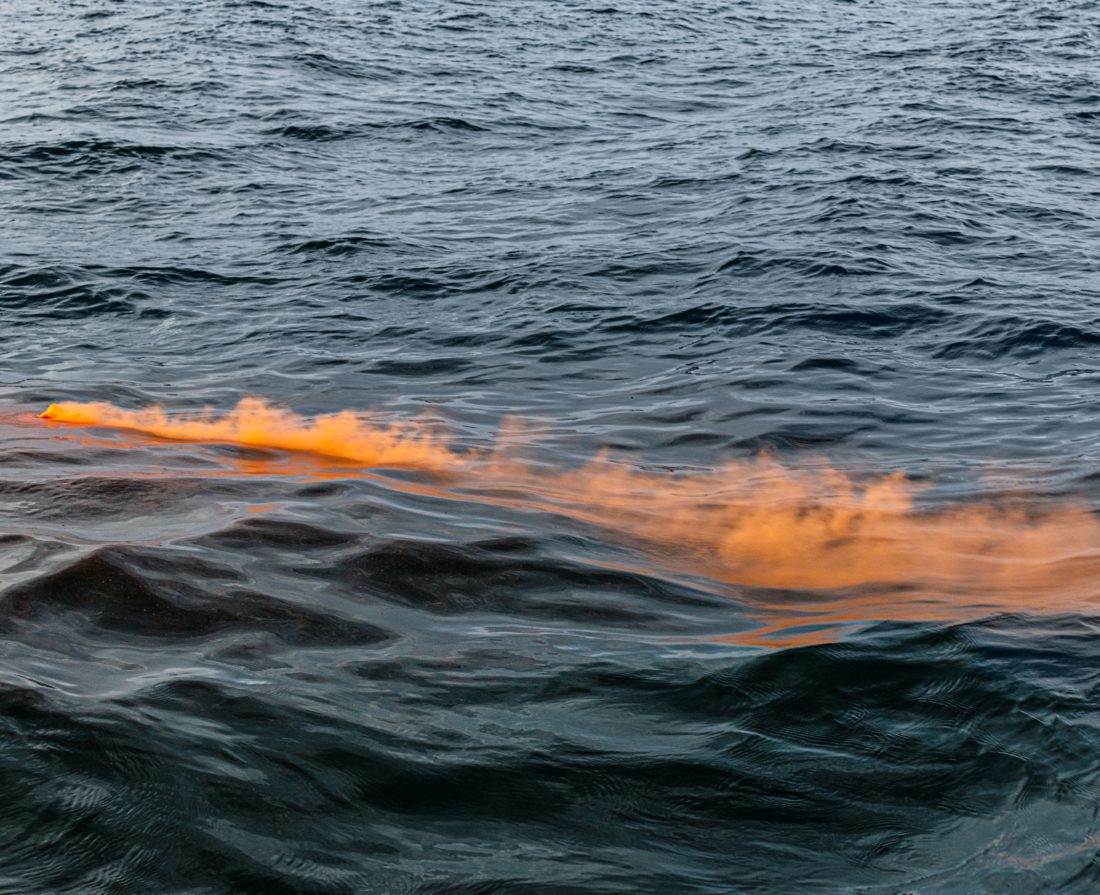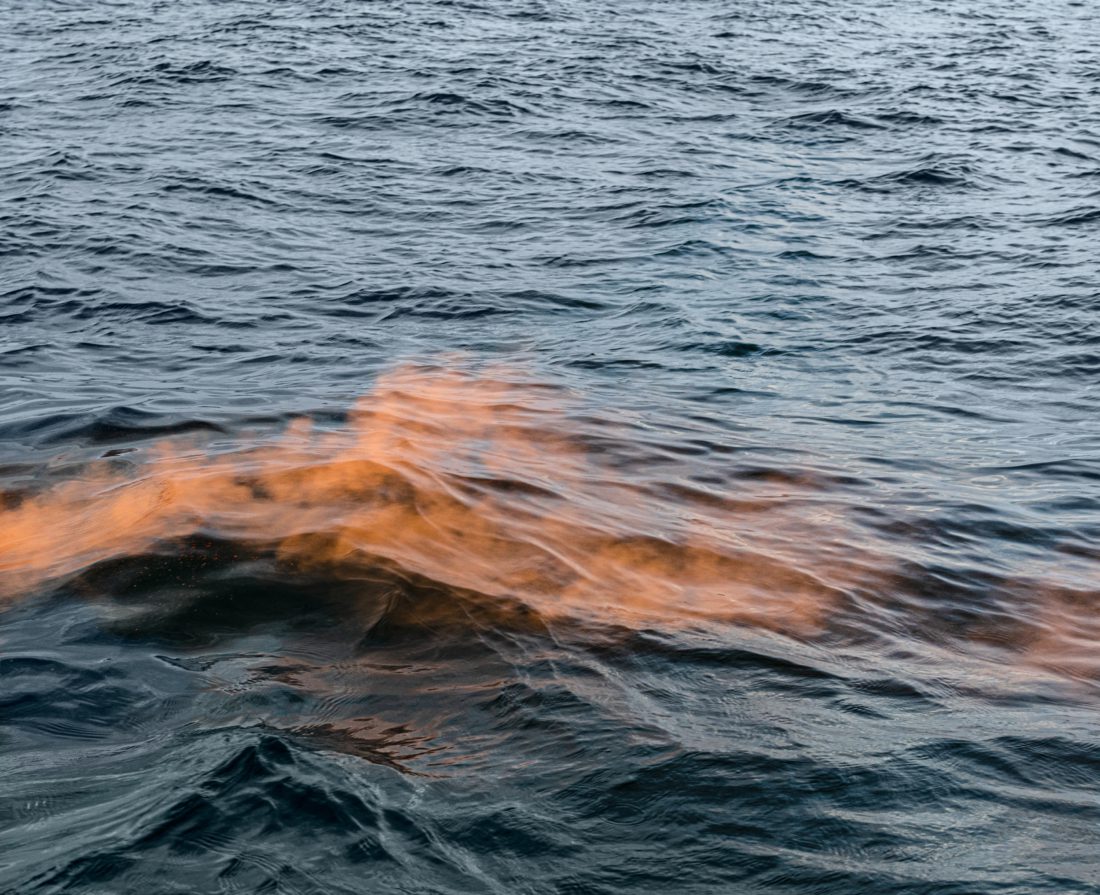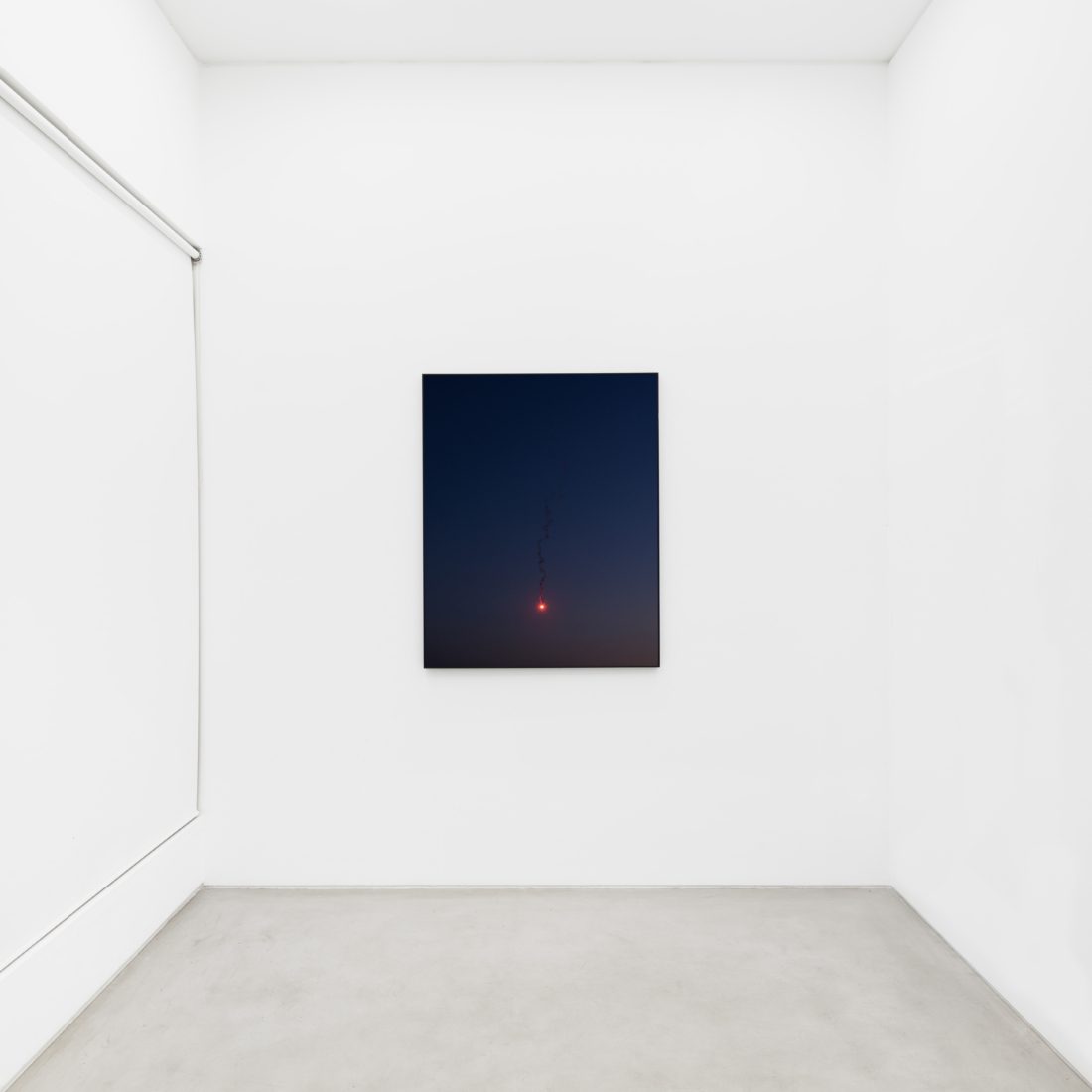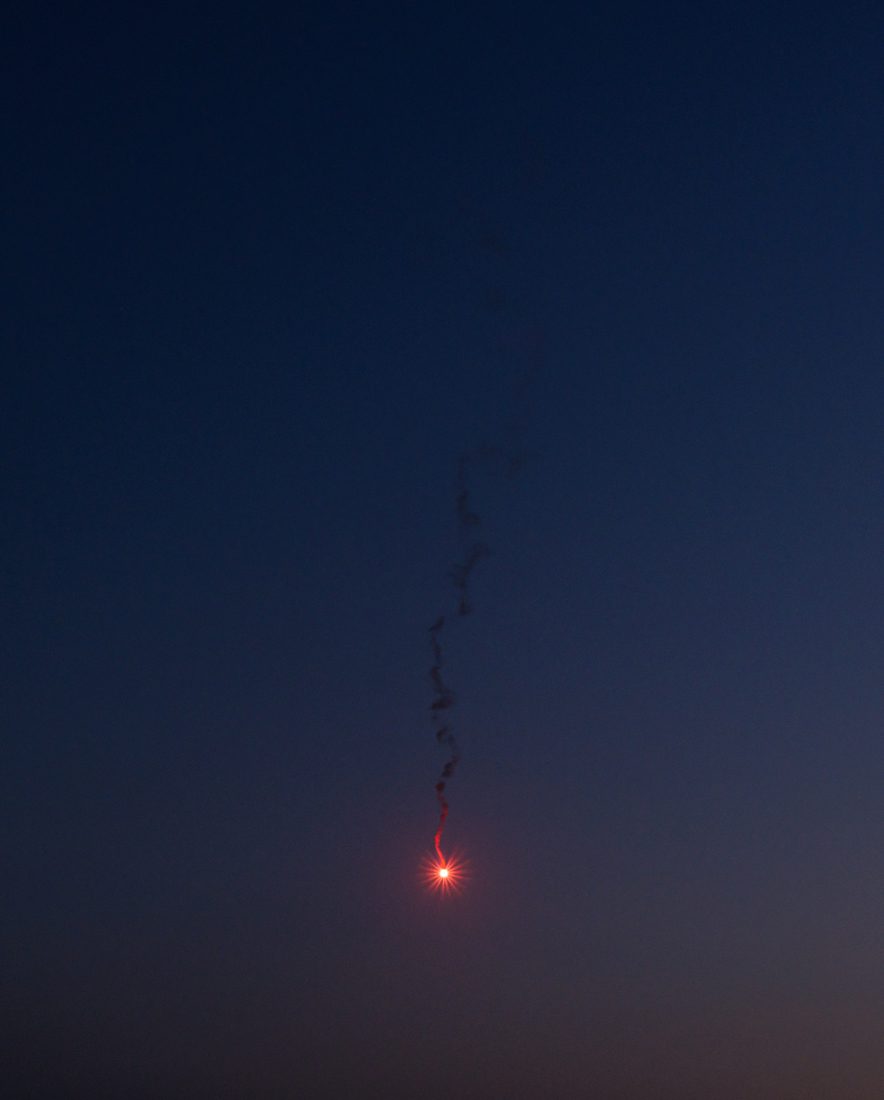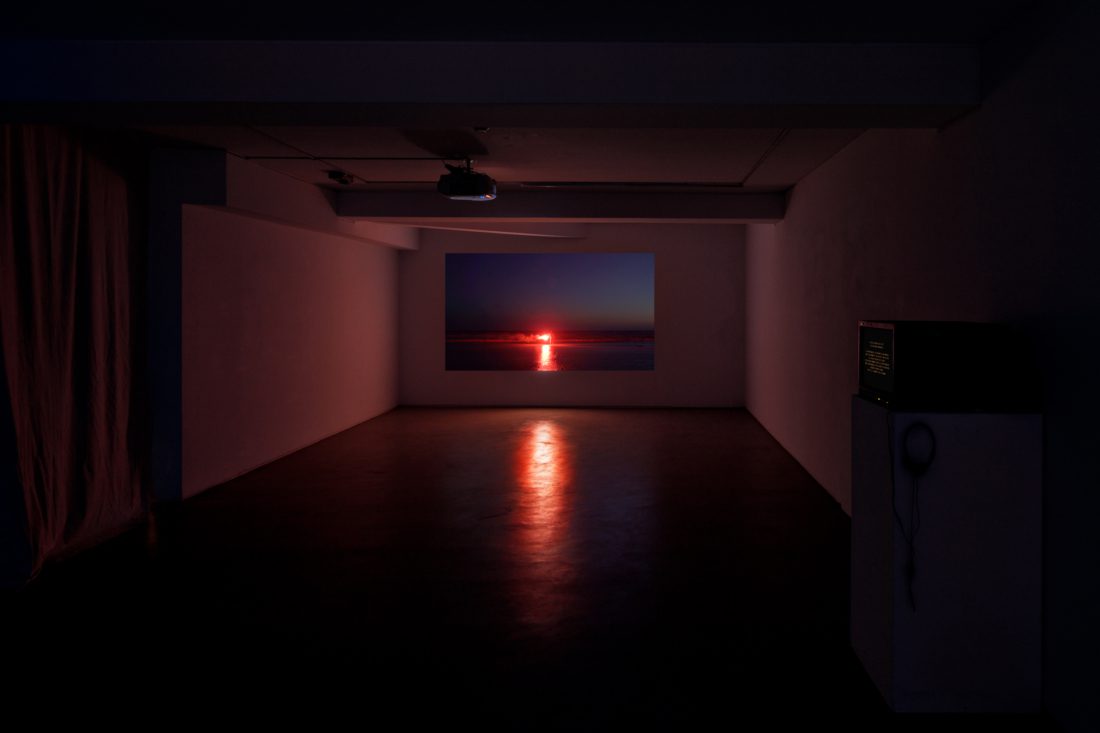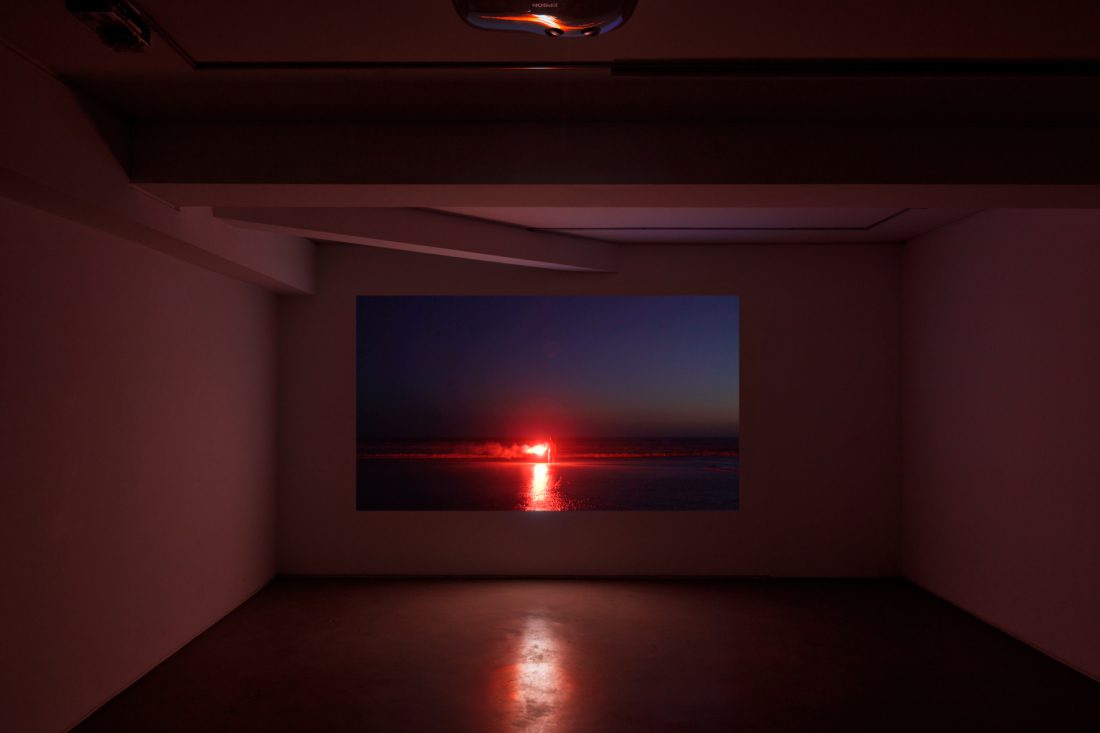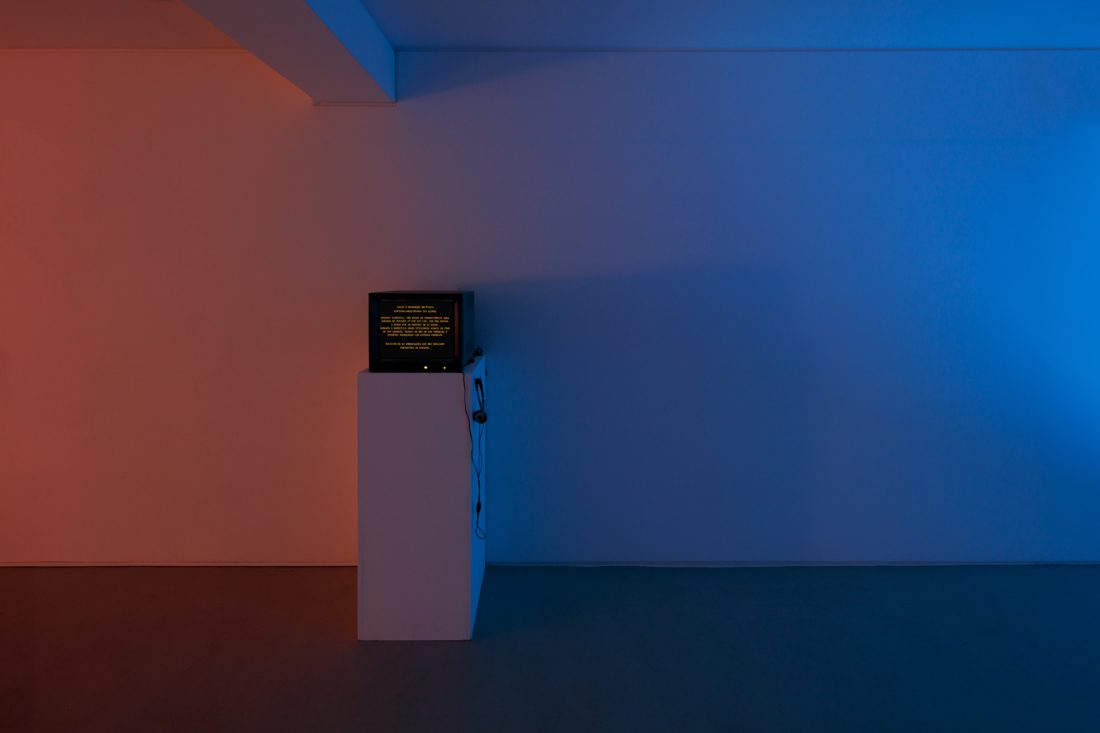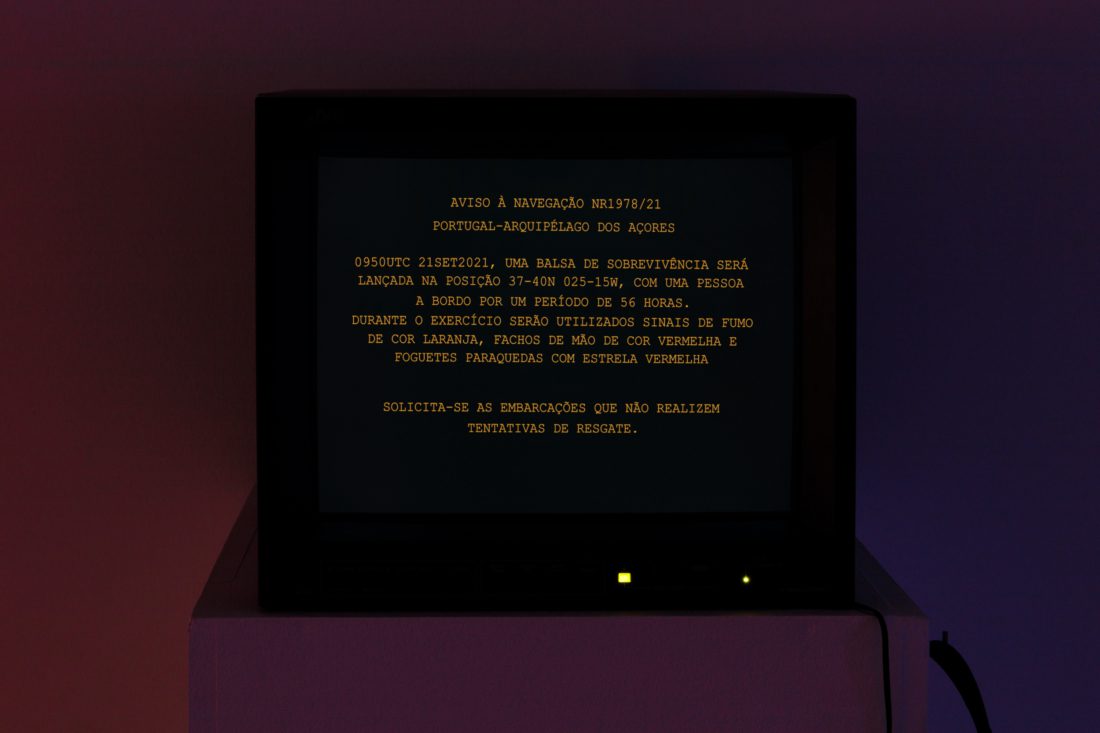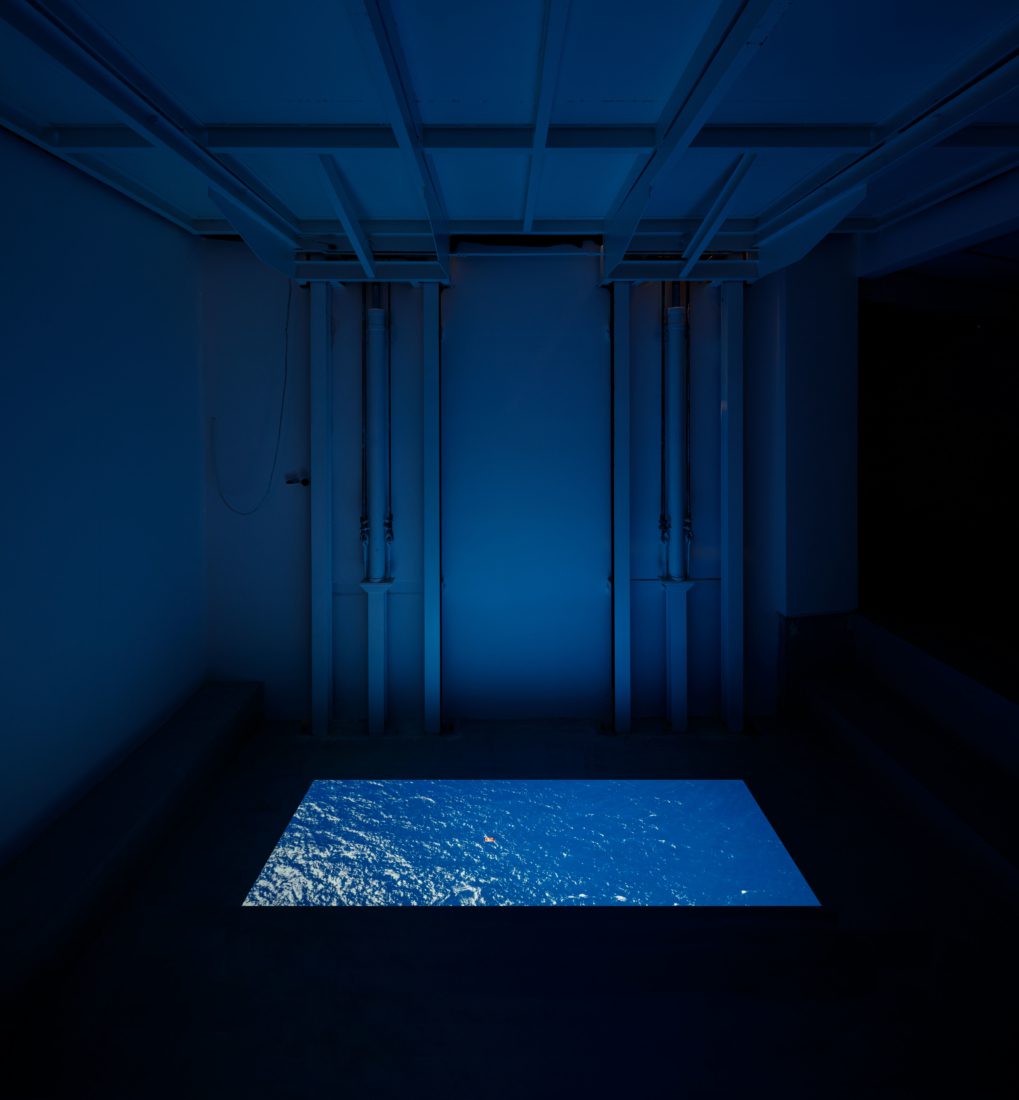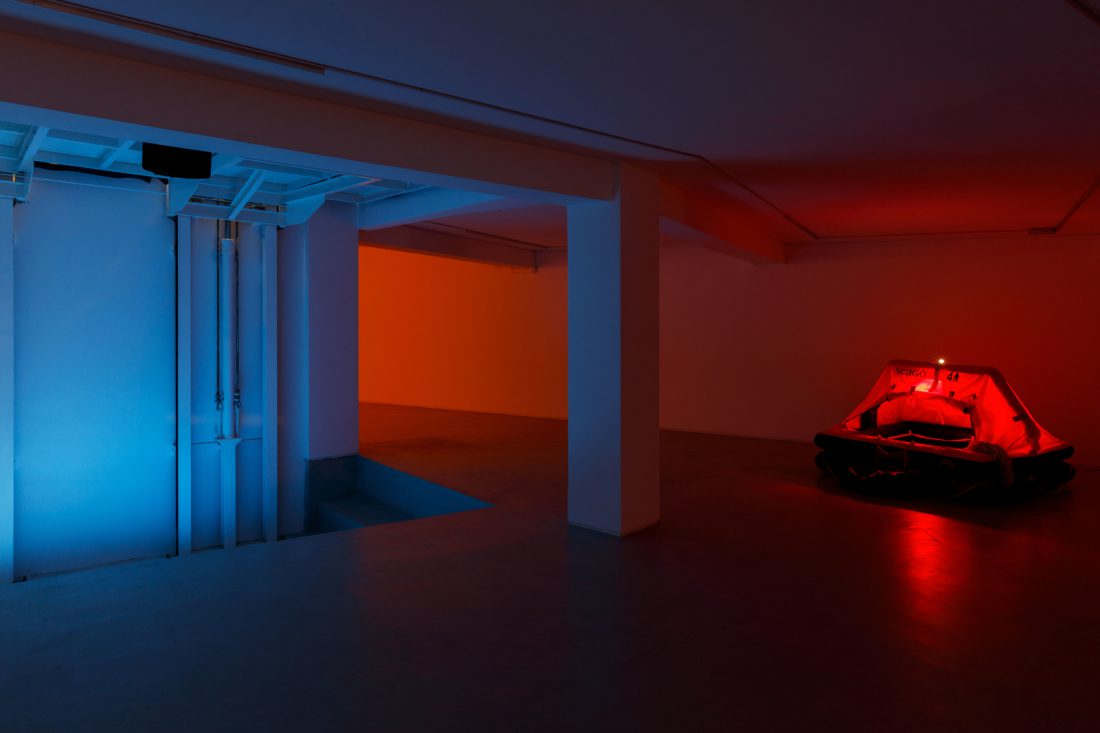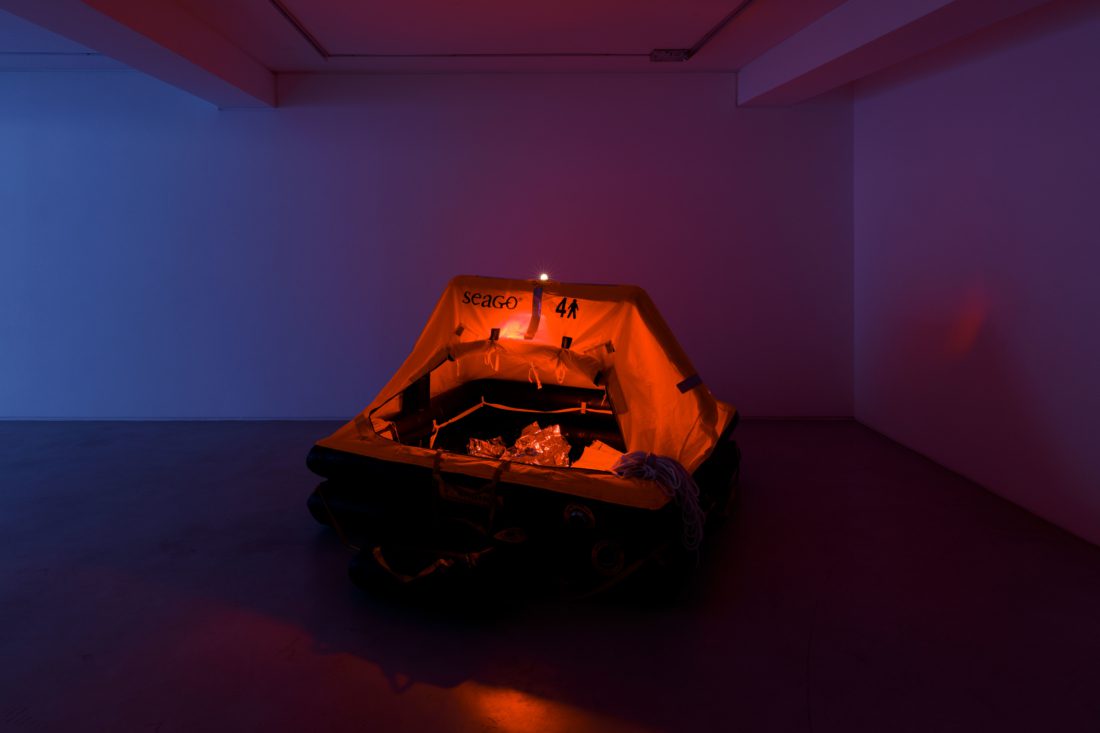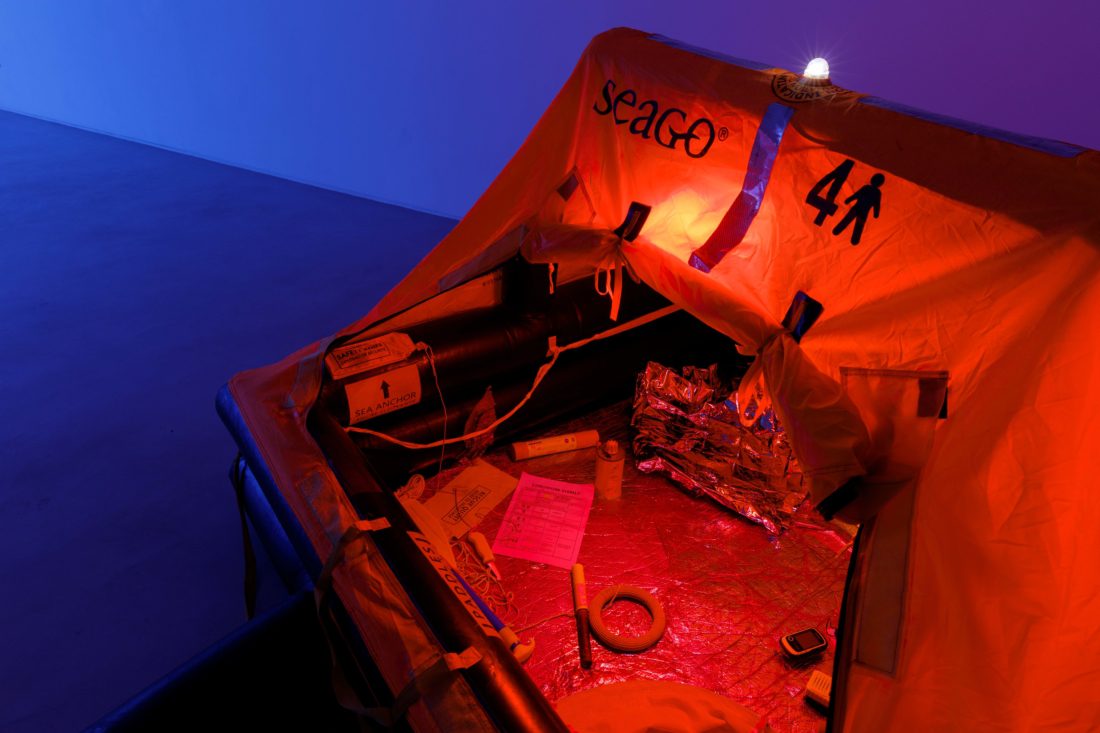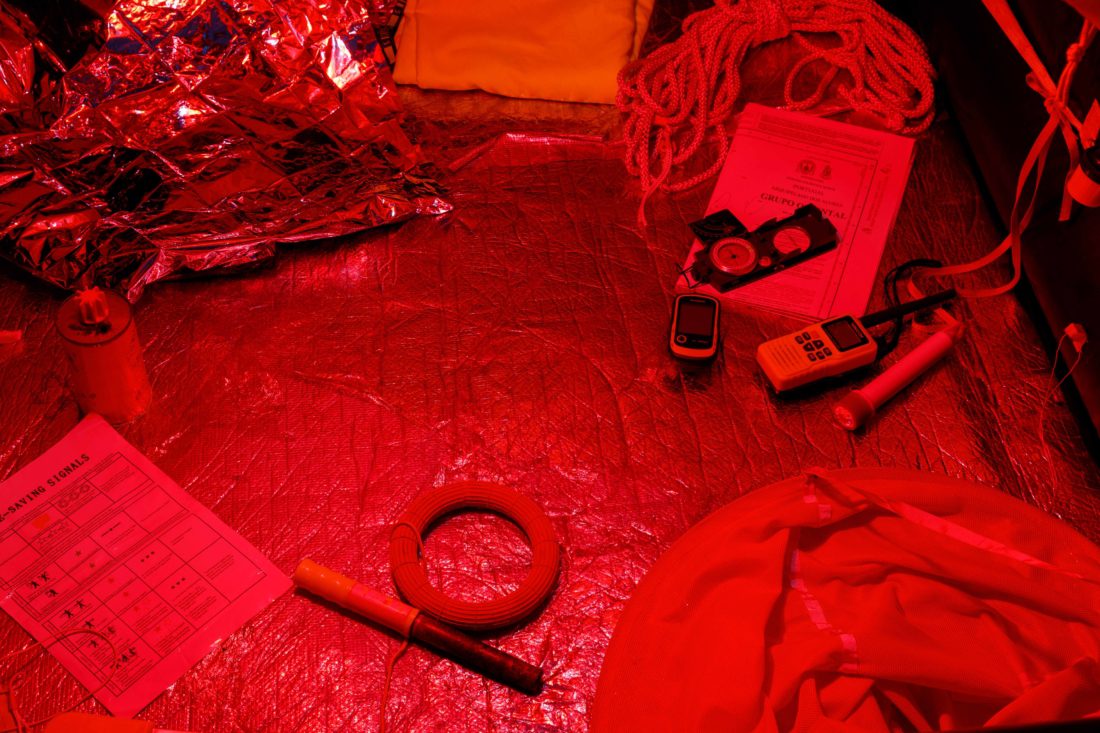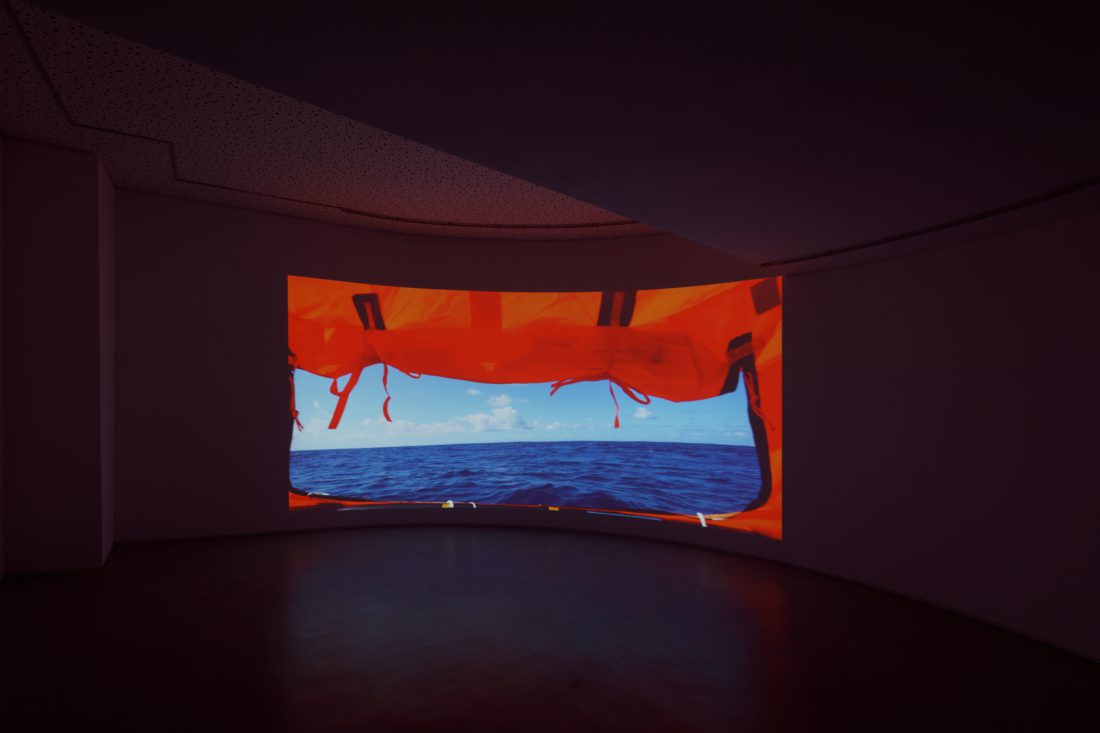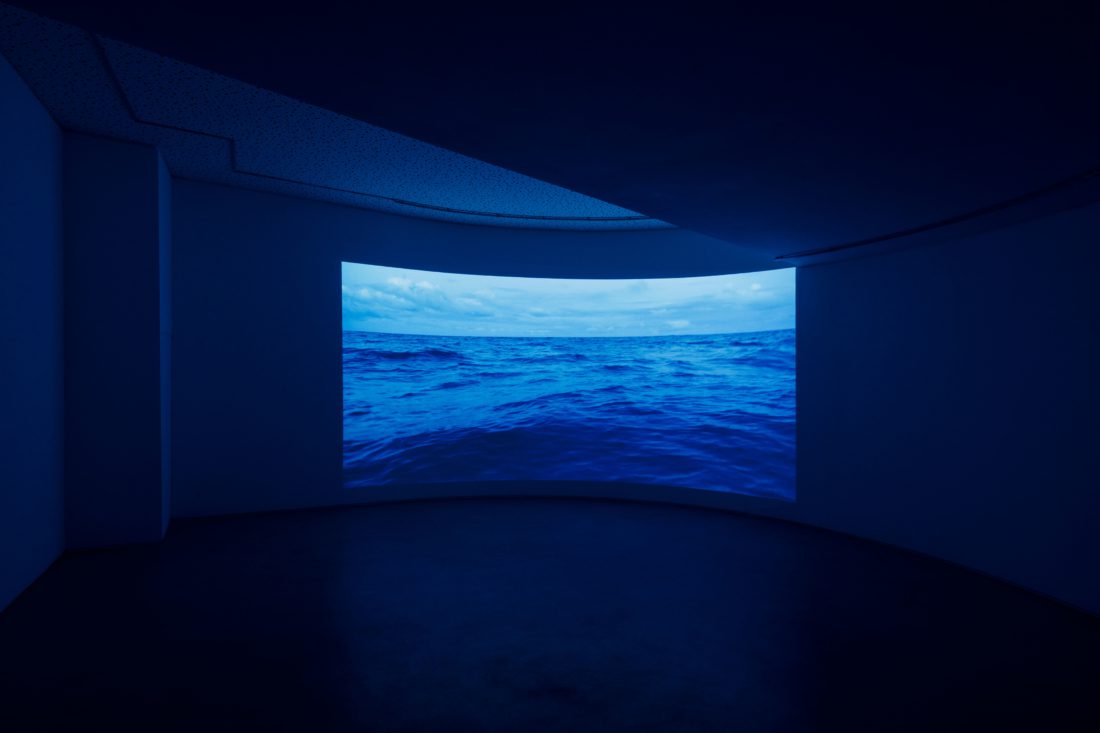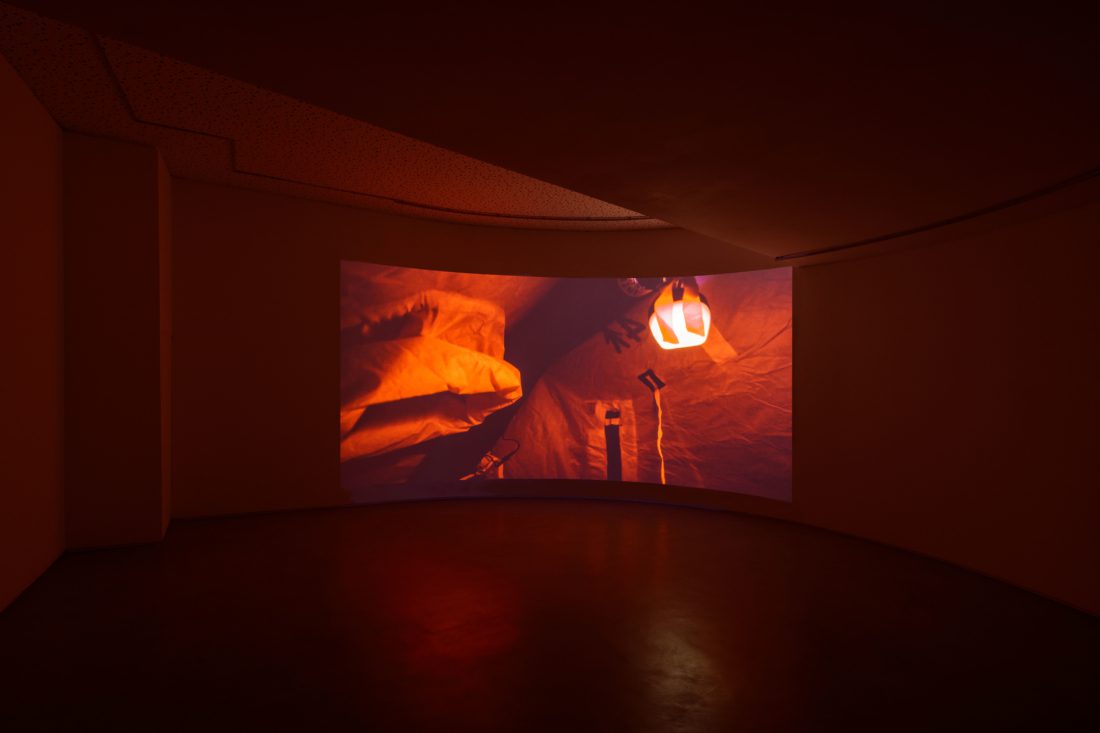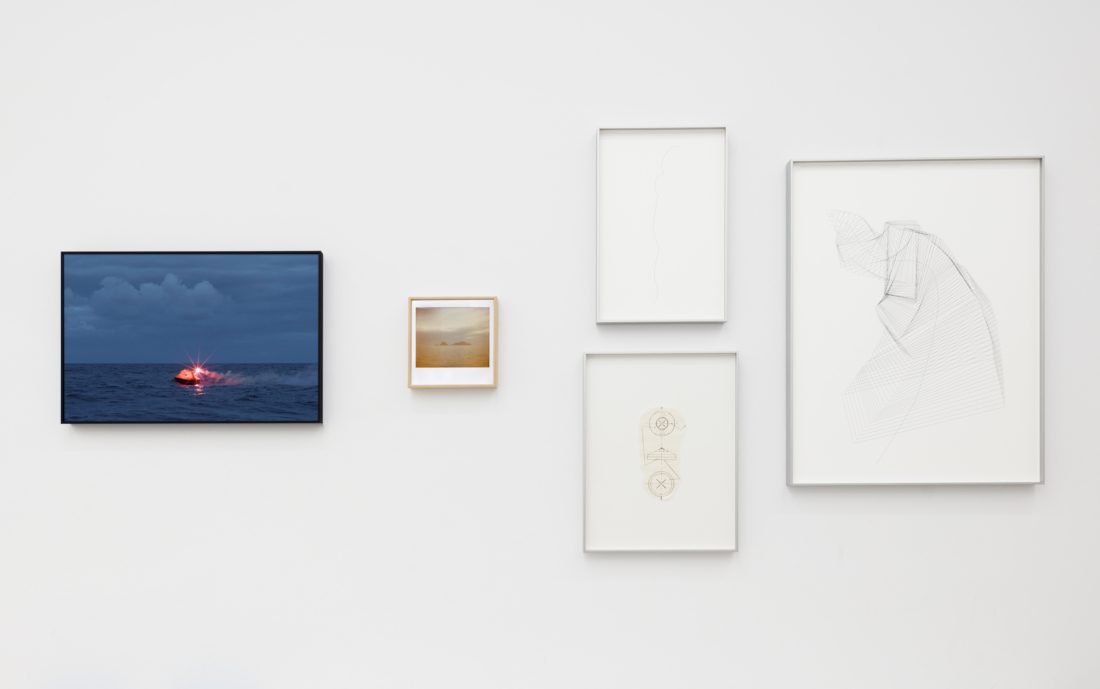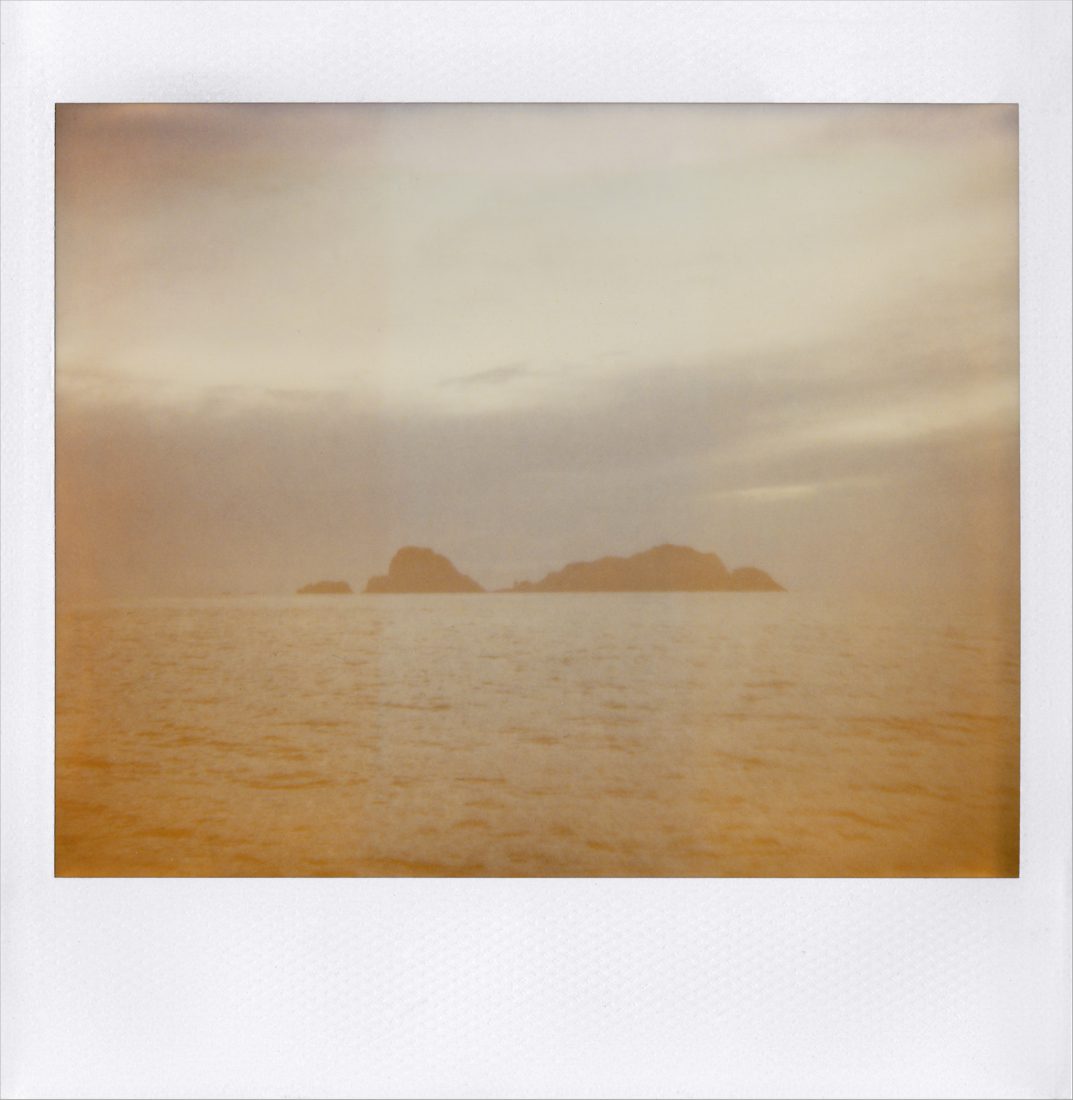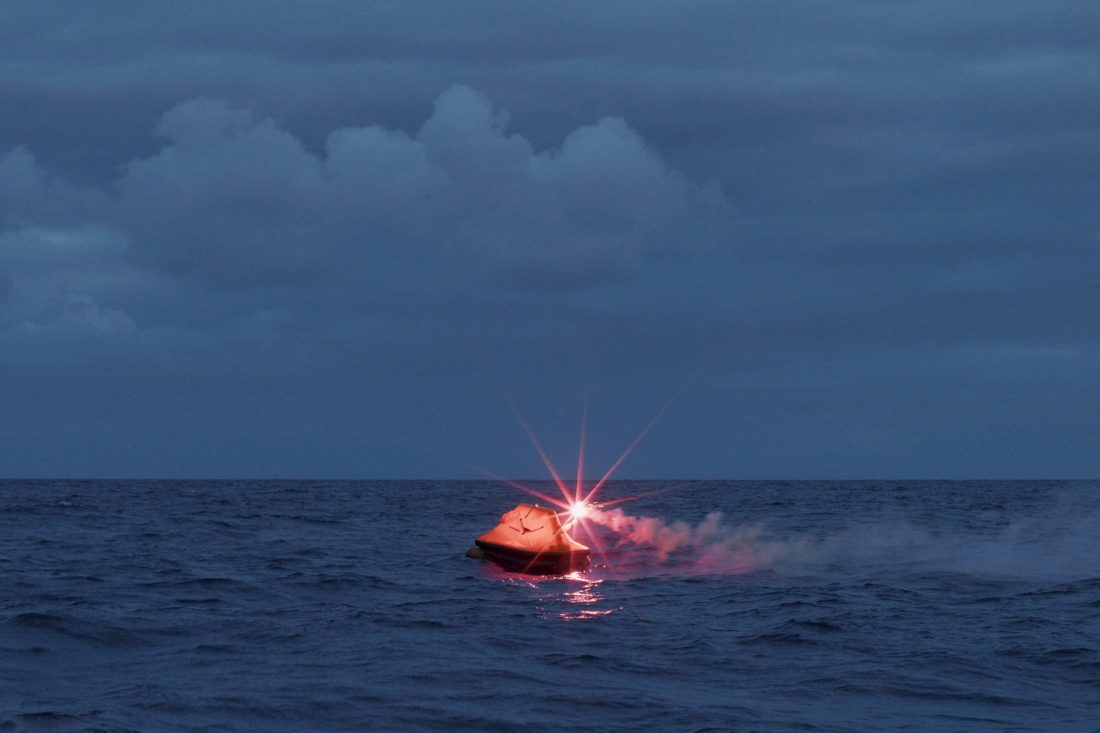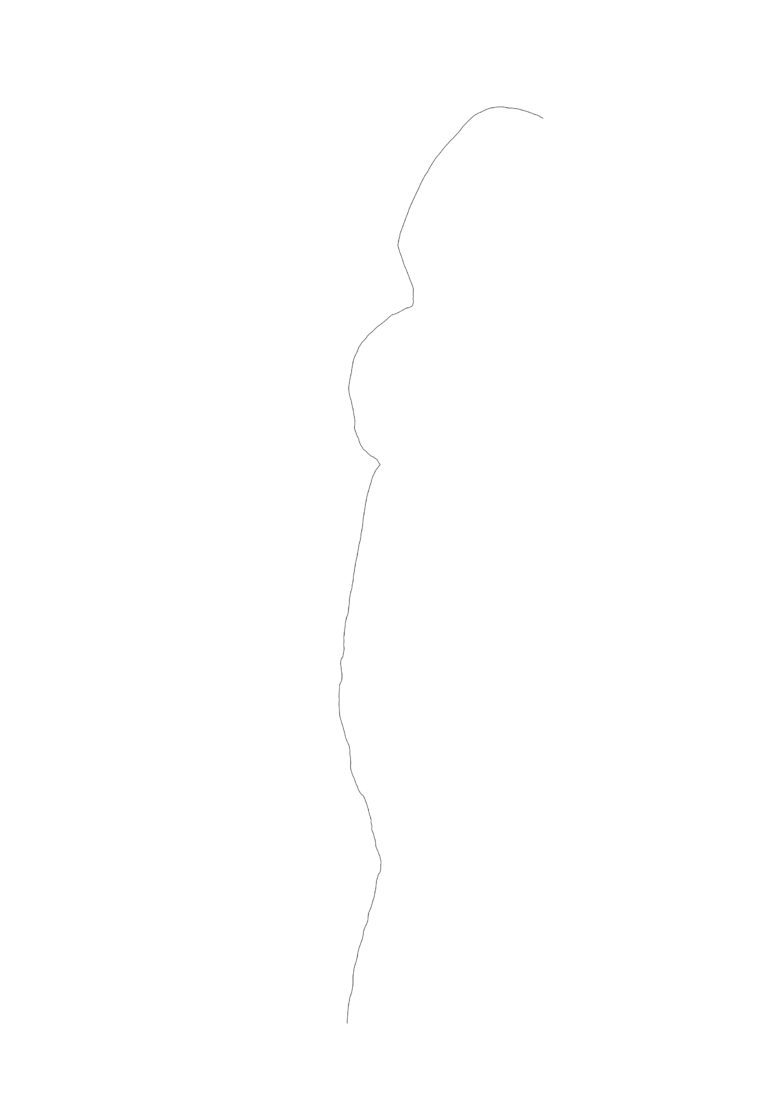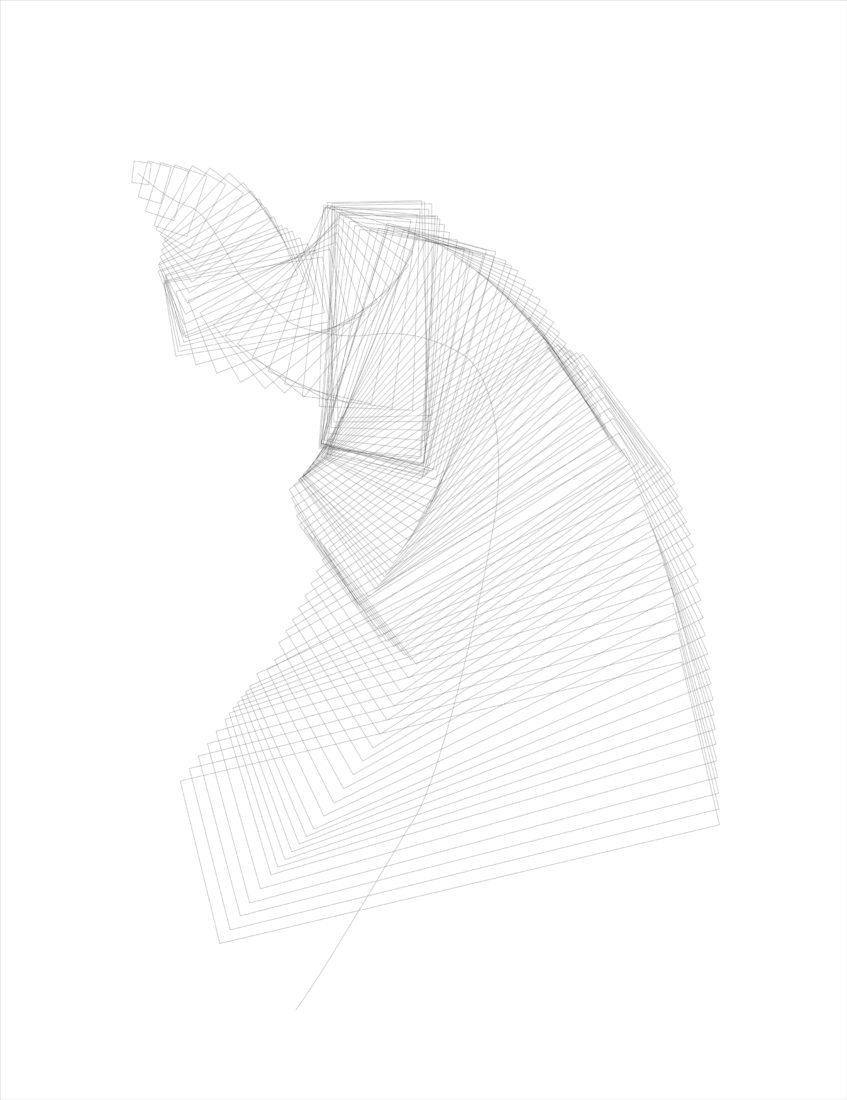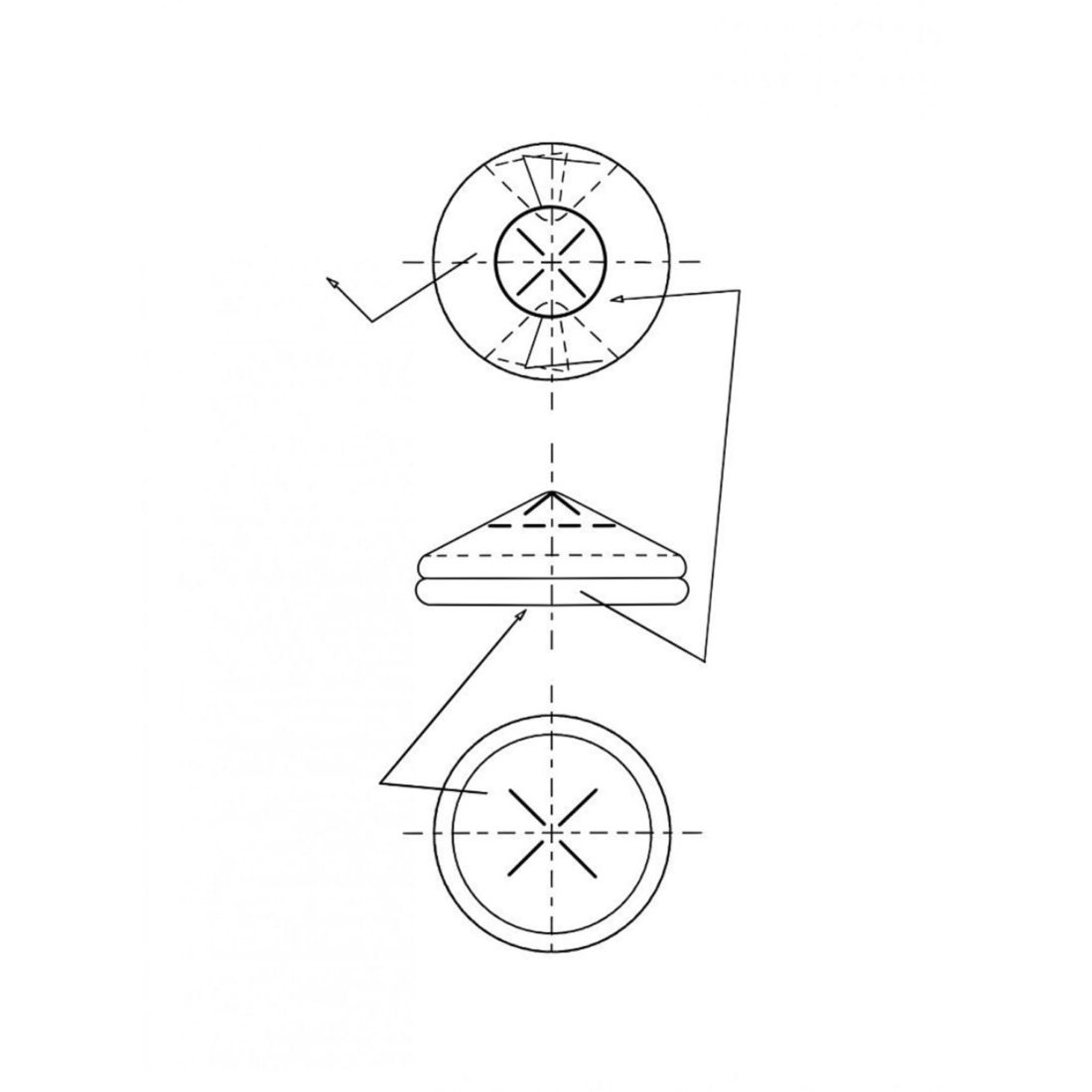Previsão de Deriva
Márcio Vilela
[29/09/23 - 12/11/23]
Foco is pleased to present “Previsão de Deriva” (Drift Prediction), a solo show by Márcio Vilela.
Opening Friday, September 29th from 6 pm
The perception that we have control over the world – rather than the actual control of any factors – is essential for well-being because human beings respond more to the cognitive representations they make of the environment than to the facts that determine it (Bandura, 1986, cited by Guedes da Fonseca, 2011). In other words, we need to believe that we control something in order to be comfortable.
When I saw the project Previsão de Deriva «Drift Prediction» (2014-2023) for the first time in the studio of Márcio Vilela (1978, Recife – Brazil), I had two ambivalent feelings. Firstly, when faced with images such as Ponte de Partida (2021), a photograph more than two meters wide, showing a seascape without a horizon line, with the sea occupying the entire field of vision, I had the feeling I always have when faced with this type of nature image that the artist produces with mastery (such as the Superflora series, 2020-21): the sensation of being invaded by an immensity and beauty that overwhelms me. In a second moment, I saw a raft and some elements that I recognized as being used exclusively in emergencies in the ocean, such as hand flares and red rocket parachutes, and documents from the Portuguese Navy. When Márcio Vilela described being inside the life raft in the middle of the ocean, the same immense ocean in the picture, for 56 hours, I couldn’t help but feel anxious and ask myself: what if it were me, at sea, adrift? I would only find myself in that condition by accident or if I were forced, but even with the certainty that it was unlikely to be me in that situation, I couldn’t help feeling uncomfortable and, at the same time, curious.
Like my encounter with this project, Márcio Vilela’s work generally begins with a question or a set of questions, followed by the choice of a method to try to answer the question(s) and, finally, a rehearsal for a proposed answer which, in reality, is the visual translation or materialisation of the path along which he tried to find some kind of answer. The questions that characterise his work are united by a deep interest in the natural landscape and the relationship between art and science, which is why he often chooses processes that involve collaborations with research institutions in astrophysics, aerospace engineering and hydrography, among others. In Previsão de Deriva (2014-2023), collaboration with the Portuguese Navy was essential.
“What would happen if I, standing on an island seven nautical miles from the coast, got into a survival raft without oars, sails or any other means of steering control? How long would it take the currents and winds to bring me back to land? Would I make it to land? Or rather, could I endure the journey? What happens if we let an object drift freely? What route will it take? What factors will determine its course?” These were the questions that gave rise to Previsão de Deriva.
Previsão de Deriva is both a 56-hour journey – in fact, a drift – in the ocean and an installation with film, photography, drawings and objects that, rather than documenting the journey, translate it into various visual forms in different parts and at different times. The titles of each part of the installation give some clues about the journey. A CRT monitor shows a Navigational warning (2021).
The only human presence is that of the artist, whom we can glimpse in the photograph Rescue Moment (2021) and in the videos with Aerial view (2021) and Very light (2023), images demonstrating the unequal dimension between the body and the ocean. The titles of the drawings, with lines that draw apparently abstract shapes, give more concrete information: Drift (87km in 56h) (2021) is, after all, the drawing of the raft’s (and the artist’s) drift along 87km of the sea for 56h. The elements used exclusively in emergencies at sea, here displaced from their original function (rescue), also contribute to the (re)construction of the journey.
Previsão de Deriva – right from the title – reminds us that human existence is made up of predictions that don’t always come true or don’t always come true as planned, no matter how much we try to control every detail. In other words, despite all our attempts to control as many of the factors that condition our lives as possible, we are often adrift. And perhaps it is precisely this understanding that makes us simultaneously uncomfortable and fascinated, paralyzed and with a sense of urgency to go.
Text by Luísa Santos, September 2023
